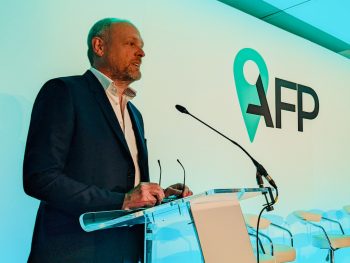Fleet Evolution refutes claims on electric vehicle salary sacrifice
Claims that electric vehicle salary sacrifice is ‘not a silver bullet’ to cutting emissions have been rebutted by Fleet Evolution, which says it has evidence to back up its words.

Knowles Fleet said salary sacrifice car schemes need to be inclusive and introduced as part of a wider sustainable transport solution
Public sector transport management specialist Knowles Fleet has warned operators that salary sacrifice car schemes need to be inclusive and introduced as part of a wider sustainable transport solution to deliver real environmental benefits.
Such schemes have become increasingly popular – BVRLA data in October showed salsac volume for its members were up 33% year on year – and many providers now offer electric-only initiatives, aided by low Benefit-in-Kind (BiK) rates for EVs and supporting driver and corporate green commitments.
But Knowles Fleet has said that such solutions, when introduced in isolation, can inadvertently cause grey fleet emissions to rise, especially during a cost-of-living crisis.
Dan O’Neill, head of commercial divisions at the firm, said: “These initiatives can work for some but as real incomes fall, so does the number of people who can afford to join a scheme, particularly as EV lease costs are higher. This forces more drivers to continue relying on their existing, older, higher-polluting cars for work, limiting progress to net zero.”
Knowles Fleet also says analysis of its 170 public sector customers reveals most salary sacrifice cars are used primarily for private travel and that many high-mileage business drivers are still opting to use their own vehicle or a lower-cost, lower-emission petrol car under a salary deduction arrangement.
O’Neill continued: “Salary sacrifice schemes often only reimburse fuel at HMRC’s Advisory Fuel Rate which gives drivers little financial incentive to switch from using their own vehicle. As a result, emissions from business travel remain high.”
And it’s highlighted that current rules mean no employee can enter into a salary sacrifice scheme if the arrangement would reduce their take-home pay below the national minimum wage, restricting take-up, especially across lower-paid sectors.
The company added that due to all the above reasons, salary sacrifice schemes must be “personalised and inclusive, offering a wide choice of zero- and lower-emission cars for all budgets plus alternative payment options such as salary deduction so more staff can join”. It’s also urged employers to adopt a holistic approach to sustainable employee transport by offering alternative, accessible options such as low-emission pool cars with online booking and keyless entry.
An ‘ideal way to reduce emissions in a very affordable way’

Fleet Evolution founder and managing director Andrew Leech
EV salary sacrifice and fleet management specialist Fleet Evolution has now responded to the claim that salary sacrifice EVs scheme are not a ‘silver bullet for reducing emissions’, which founder and MD Andrew Leech said was completely erroneous.
He commented: “Through many years’ experience of providing electric cars through salary sacrifice, we can say categorically say that they are the ideal way to reduce emissions and get older, more polluting cars of the streets in a very affordable way for most employees.
“You only have to look at the official figures to see this is true. A 2023-plate MG4 EV will cost the average employee around £350 per month, including all VED, servicing, maintenance, breakdown recovery and more – in fact, a complete, all-in motoring package. They will have to pay BiK on the P11D value of the car but that’s only 3% for the 2023/24 tax year.
“Compare this to the latest official Government figures which show that keeping a five-year-old Vauxhall Astra diesel on the road is around £6,000 per annum, with all the carbon and NOx emissions that conjures up, and you can see that they are poles apart.”
And Leech argued that Knowles’ claim that “off-the-shelf, electric-only solutions, introduced in isolation can inadvertently cause grey fleet emissions to rise, especially during a cost-of-living crisis” was rather wide of the mark.
“In fact, in the current cost-of-living crisis, EVs provided through salary sacrifice can be an affordable way for employees to have access to the latest technology, providing zero emissions and giving financial peace of mind to the employee.”
He also disputed the point about advisory fuel rates.
Leech went on: “Salary sacrifice cars are classed as company cars, so that the typical reclaim rate is actually only 8p per mile. However, we work with a large number of companies, including Palletways and SalusAI, for example, to employ innovative strategies that allow grey fleet drivers to move to electric cars without necessarily losing out on their previous levels of mileage reimbursement.”
But Leech said that the one point he did agree with concerned the National Living Wage (NLW) and the fact that a salary sacrifice scheme is not legally allowed to take an employee’s take-home salary below the NLW.
While the Government’s intention is to protect the lowest-paid workers, ensure they have a minimum standard of living and prevent them from getting into financial hardship, Fleet Evolution has previously argued the rules are ironically hurting the very people they were intended to safeguard.
“We would like the Government to make a minor adjustment to the current rules with a caveat which states that the NLW threshold remains in force, unless the employee opts for and agrees to a beneficial salary sacrifice arrangement which takes them below that level. This allows them to take advantage of the very generous schemes that are currently available,” he stated.

AFP chair Paul Hollick said salsac schemes do need careful structuring but can provide a genuine benefit for many
The Association of Fleet Professionals (AFP) has also given its viewpoint on the advantages of salary sacrifice, highlighting both the cost- and eco-saving benefits of such arrangements in general but also other factors that need to be considered for such schemes.
Chair Paul Hollick said: “There are some issues currently attached to salary sacrifice such as ongoing vehicle shortages and rising lease costs but the concept continues to grow in usage quite quickly and looks set to continue do so while company car Benefit-in-Kind on EVs remains low.
“In cases where the prospective users feel the monthly cost is too high, it’s sometimes helpful to take them through the real-world cost of running their existing, higher-polluting vehicle. By the time that servicing, insurance, breakdown recovery and more is taken into account, the salsac car – which generally includes all of these in a single payment – often starts to look more attractive in terms of overall value.
“The schemes do need careful structuring and aren’t for everyone but, with the right provider in place, represent a genuine benefit for many that want a cost-effective, low-emissions vehicle.”

Paul Gilshan, Tusker’s CEO, says salary sacrifice is the most affordable way to drive electric
And Paul Gilshan, CEO of salary sacrifice expert Tusker, has said that salary sacrifice schemes have a key role to play in helping drivers to go electric in an affordable way.
He commented: “Salary sacrifice offers employees, including those on lower salaries, the opportunity to drive an electric car, usually for the first time. As a result of the unique way that salary sacrifice works, it is the most affordable way to drive electric, cheaper than PCP or PCH cars because salary sacrifice has natural savings for electric and doesn’t attract a large upfront deposit. It’s also often more affordable than driving a second-hand car due to the current high prices we’re seeing.
“As the EV market matures, and P11d values reduce, 2023 will offer even more people the chance to drive an EV via salary sacrifice.”

